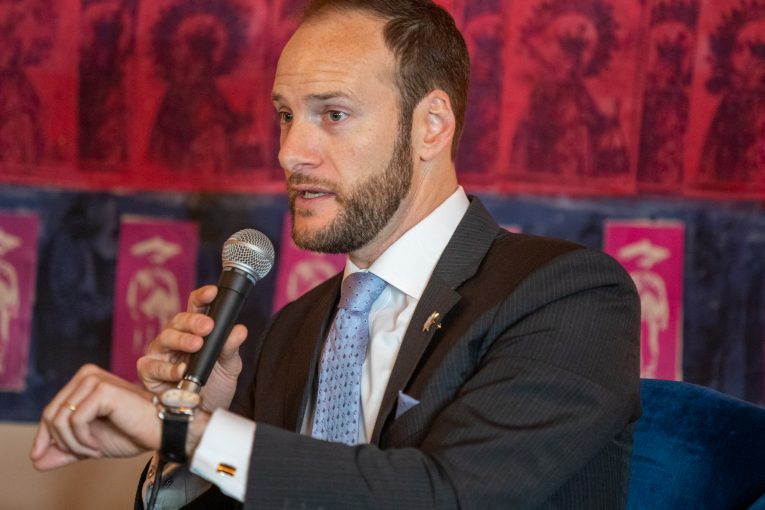
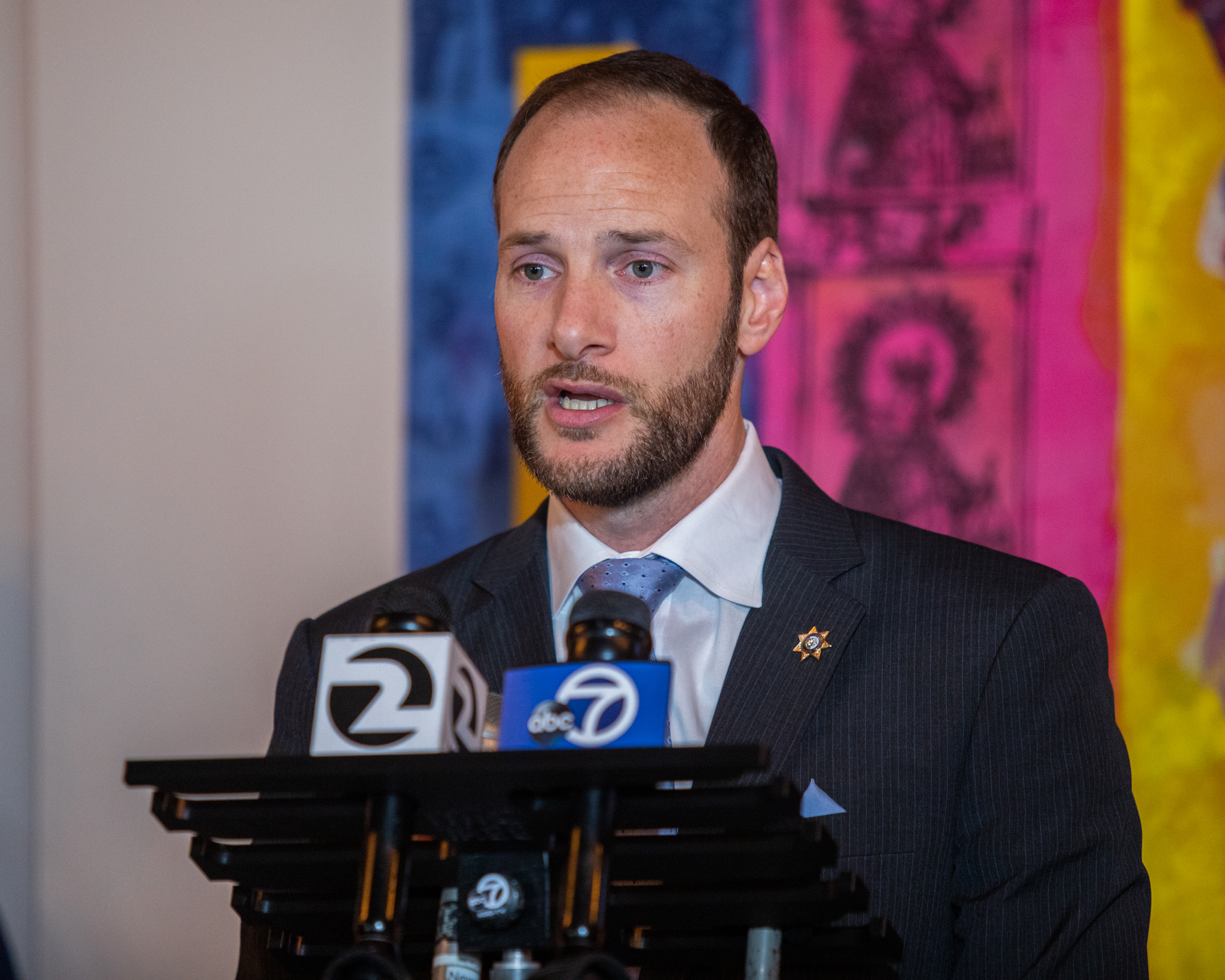 SAN FRANCISCO – In a major announcement, San Francisco DA Chesa Boudin on Friday announced that prosecutors in his office will end the practice of charging people for possession of drugs or other contraband resulting from stop-and-frisk style “pretextual” searches. Moreover his office will no longer charge defendants with so-called “status based sentencing enhancements,” which include prior strikes and gang enhancements.
SAN FRANCISCO – In a major announcement, San Francisco DA Chesa Boudin on Friday announced that prosecutors in his office will end the practice of charging people for possession of drugs or other contraband resulting from stop-and-frisk style “pretextual” searches. Moreover his office will no longer charge defendants with so-called “status based sentencing enhancements,” which include prior strikes and gang enhancements.
During his press conference, he noted that these policies “deal directly with the policies of racial bias and racial disparities within the criminal justice system,” saying about the changes, “both of which allow us to push all of San Francisco and hopefully the rest of the state of California and the country towards policies that make us safer and make our criminal justice system fairer.
“We are taking head-on the legacy of Jim Crow and explicit racism in our criminal justice system,” he said.
San Francisco is believed to be the first jurisdiction in the country to implement these policies.
They include:
- Declining to file possession of contraband charges in cases where an officer uses a minor traffic infraction to pull over and search a motorist, also known as a “pretextual” stop.
- Ending the use of California’s Three Strikes law and related provisions.
- Ending the use of sentence enhancements that are based on alleged gang affiliation status.
- Seeking sentences based on a person’s present conduct, such as weapons used or injury to victims, rather than the person’s past history.
On pretext stops, Mr. Boudin noted that the Department of Justice in 2016 under President Obama had issued a scathing report identifying over 200 urgently needed reforms within the San Francisco Police Department.
Several of those focused on the use of pretextual stops in searches of people of color.
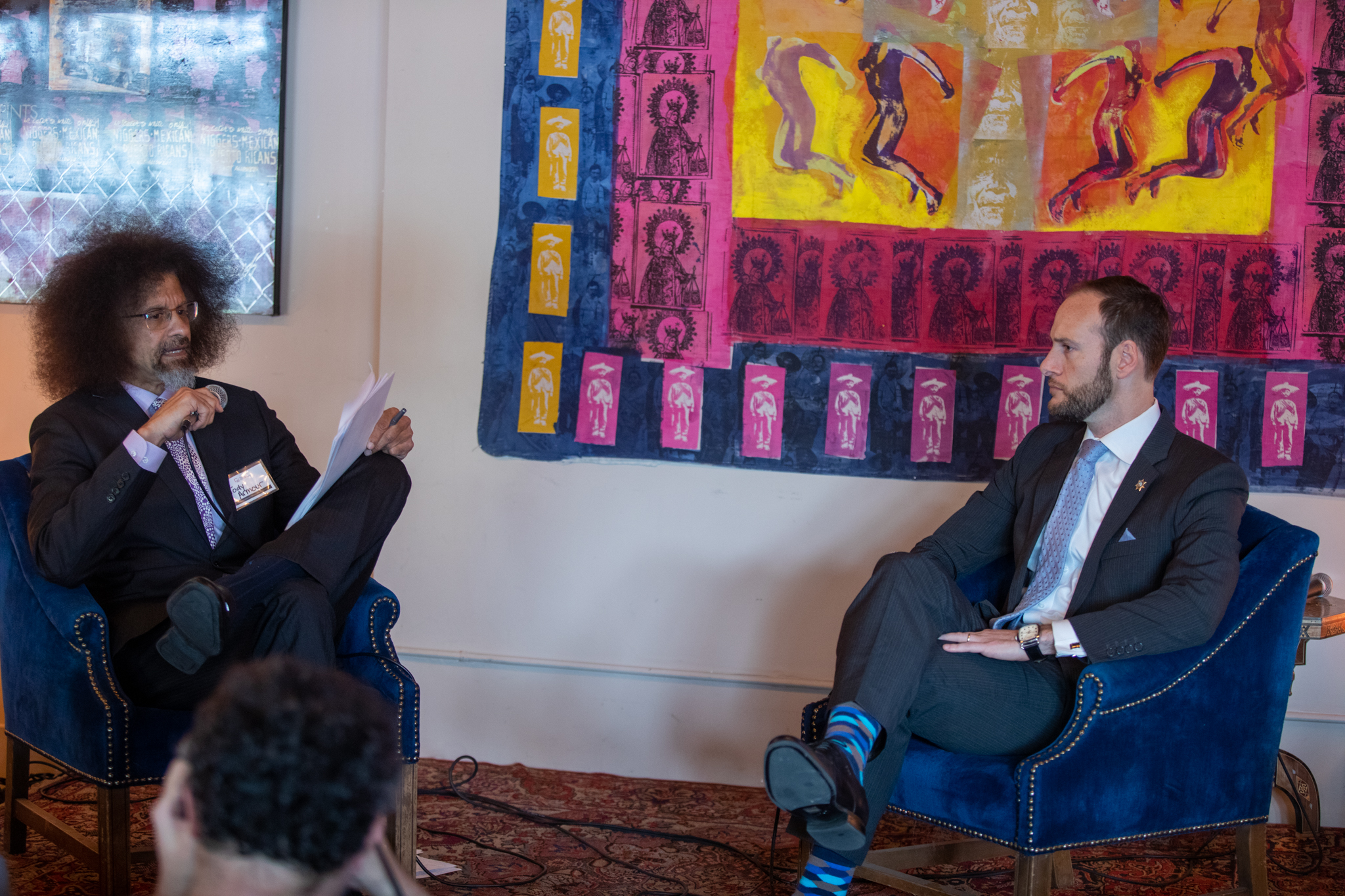
This year, he said, they saw data released in a study last month “that African Americans in San Francisco were more likely to be stopped relative to their percentage of the population than African Americans in any other major city in the state.”
He said, “Five times more likely than someone who looks like me.”
He added, “In the four years since the Obama Administration report, we have not made progress.
“Today we take action,” he said. “We send a message that is loud and clear. We will no longer participate in, condone, tolerate, or amplify racist police tactics.”
Chesa Boudin announced that in cases where there are “infraction-related stops” with “no other independent probable cause” and “that search results in the a seizure of contraband” “our office will presume to decline those charges.”
He reiterated that “this is contraband-only cases.” He said, “If the officer makes a stop and is assaulted, we will prosecute the assault.” They will also prosecute evading, they will prosecute the seizure of contraband in plain view, and if evidence shows the property was used in a murder, they will prosecute that as well.
As the policy states: “This policy only applies to infraction-related stops and post-stop searches for contraband where there is no other articulable suspicion of criminal activity, and to any potential criminal possessory charges that result from this investigative action.”
 On the status sentencing enhancement changes, Chesa Boudin stated, “Three Strikes is a policy that is a testament to the state’s tough-on-crime era. It was a policy that resulted in harsher and harsher punishments almost every week there were new laws adding prison time… with no data suggesting those sentences decreased crime, increased healing, or increased rehabilitation.
On the status sentencing enhancement changes, Chesa Boudin stated, “Three Strikes is a policy that is a testament to the state’s tough-on-crime era. It was a policy that resulted in harsher and harsher punishments almost every week there were new laws adding prison time… with no data suggesting those sentences decreased crime, increased healing, or increased rehabilitation.
“We are stuck with those laws on our books,” he said. “They do not keep us safer.”
He said, today “the announced policy is we will not charge status enhancements —three strikes, five year priors, or gang enhancements.”
The impacted enhancements for sentencing:
- Any prior-strike status enhancements (Penal Code § § 667(d), 667(e); 1170.12(a) and 1170.12 (c)) will not be charged and pending strike-prior enhancements will be dismissed.
- Any Prop 8 or “nickel-prior” status enhancements (Penal Code §667(a)(1)) will not be charges and pending enhancements will be dismissed.
- STEP Act enhancements (“gang enhancements”) (Penal Code § 186.22 et. seq.) will not be charged and pending enhancements will be dismissed.
Chesa Boudin stated that the charges for the actual crimes are presumed to be adequate, and “we do not need to punish people for who they are or what their previous crimes were.” He added that this simply codifies to a large extent what San Francisco has been doing.
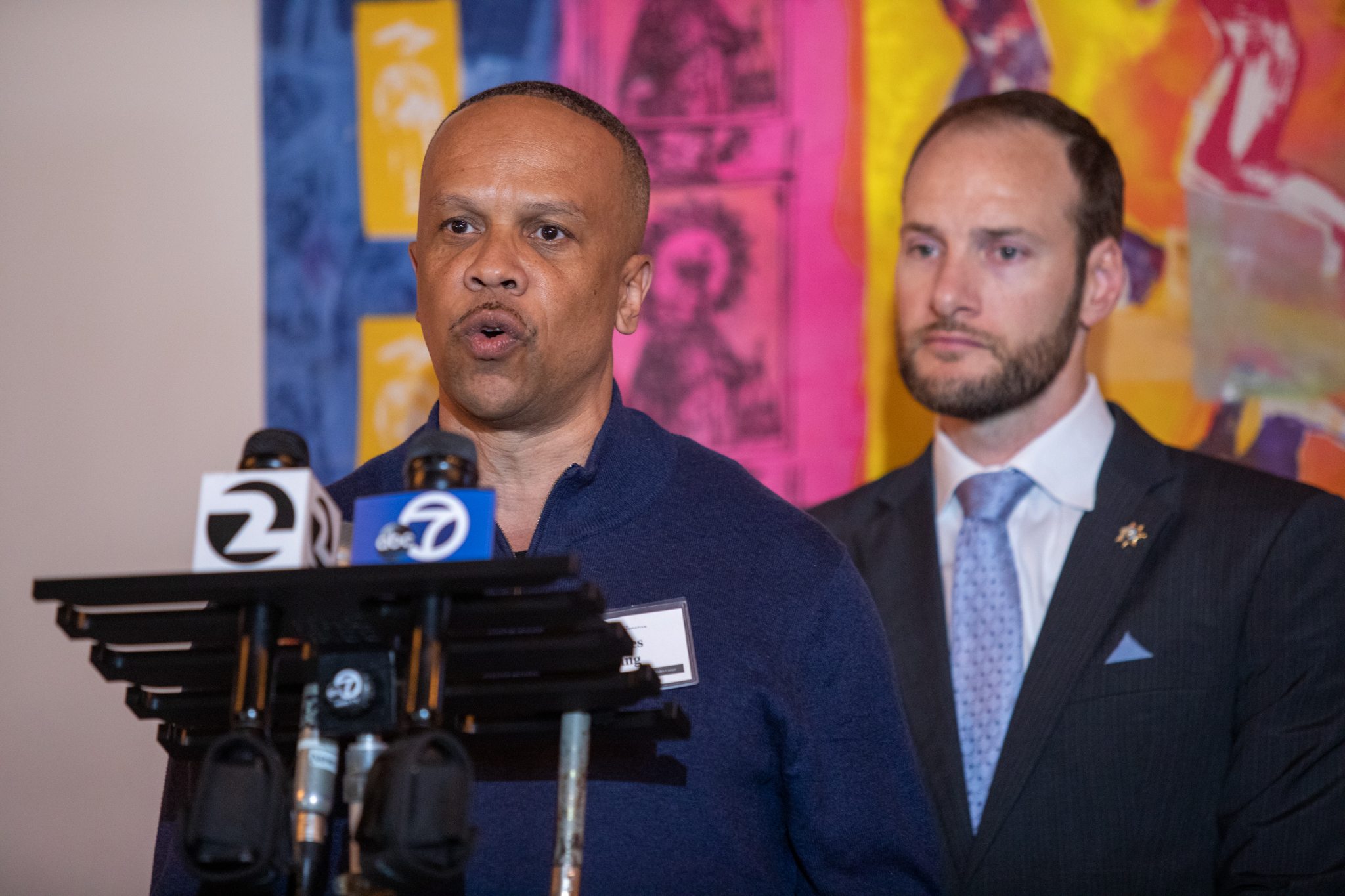 He noted that if someone commits a robbery, they can sentence them to five years in prison and argued that “in most cases that is more than enough punishment.”
He noted that if someone commits a robbery, they can sentence them to five years in prison and argued that “in most cases that is more than enough punishment.”
The policy notes: “The presumption is that the sentence for the underlying crime and the ability to charge appropriate conduct enhancements are sufficient to protect public safety. In a case in which there are relevant aggravating factors, including prior convictions, this office will seek the aggravated prison term prescribed for the offense whenever appropriate.”
The policy adds that it does “not affect the decision to charge crimes where a prior conviction is an element of the offense (i.e., felon in possession of a firearm, driving under the influence etc.), nor does it affect evidence code provisions that allow for introduction of prior conduct.”
Chesa Boudin added that in cases where they believe that the base crime is not sufficient, “we have discretion to make exceptions.”
He noted that the consequences of these existing polices has been to take the incarcerated population from just a few tens of thousand when he was born to over 200,000 today.
“Forty-five percent of the prison population under the Three Strikes sentencing regime are African American,” he said. “These are polices that have a direct connection to racial disparities.”
The changes were welcomed by a broad coalition of legal experts, legislators, and criminal justice reformers.
“From racially-targeted traffic stops to stop-and-frisk policies, this country has wrongfully accused millions of people—entangling generations of Black and brown people in the criminal justice system,” said Congresswoman Ayanna Pressley (D-MA).
She added: “We need a transformative, bold, radical reimagining of what the criminal legal system can be, and that starts with prioritizing decarceration. I applaud District Attorney Boudin’s decision to uproot racial bias, end draconian sentencing practices, and reverse the failed tough-on-crime policies that have led to mass incarceration. It is time for bold reform.”
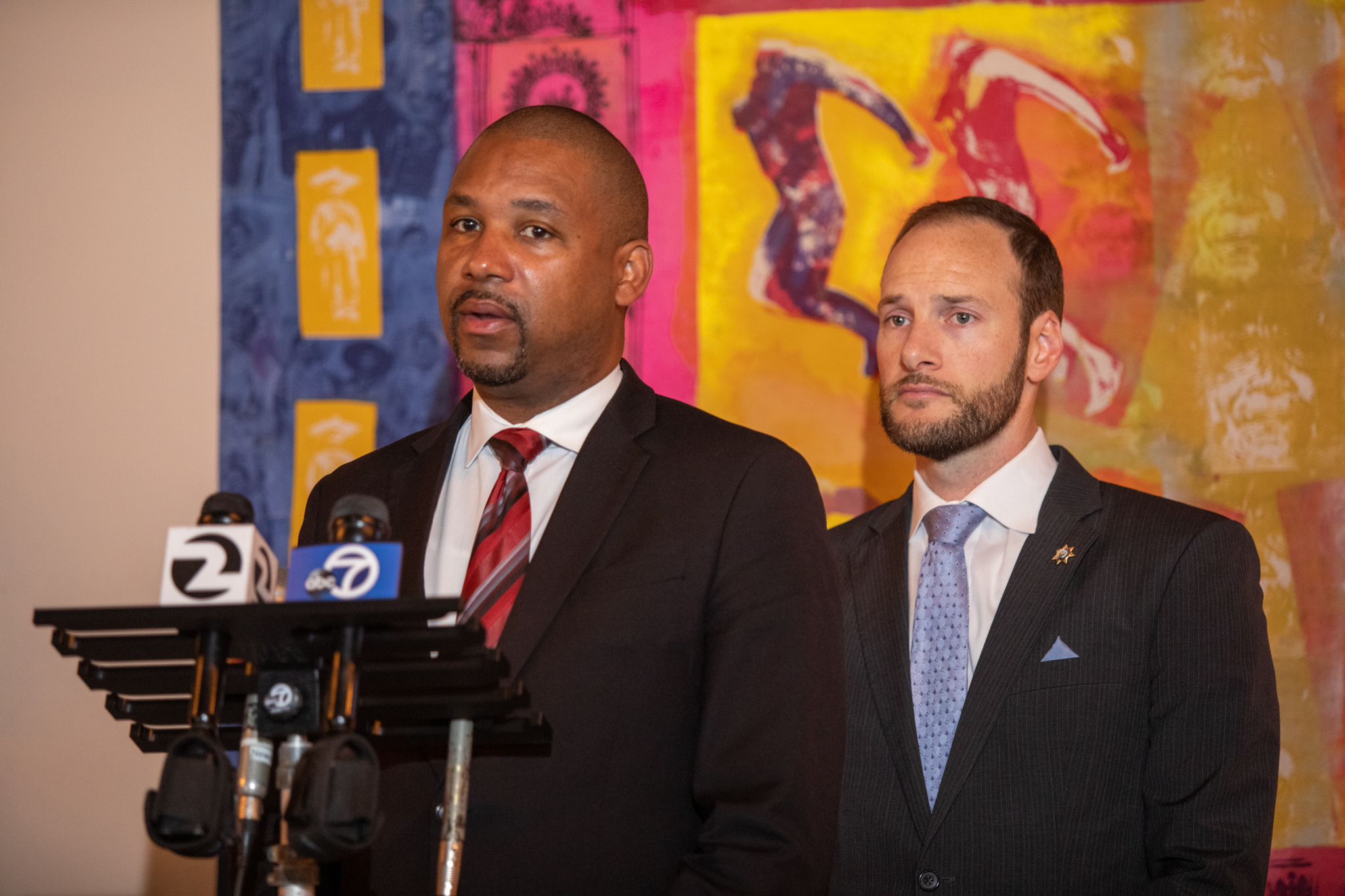
San Francisco Supervisor Shamann Walton also applauded Boudin’s decision.
“Pretextual stops, just like stop and frisk, overwhelmingly target communities of color. These policies, along with gang enhancements and other status enhancements, have contributed to abhorrent racial disparities in this city’s criminal system, resulted in excessive sentences, and have not made us any safer. The constitutionality of these stops has always been in question and it is time to end them,” Walton said.
Gang enhancements, which created mandatory minimums for both children and adults, have been widely criticized for being racially biased and overly broad. They have been struck down as unconstitutional and abolished in Tennessee. In 2019, more than 90 percent of adults with a gang enhancement in state prison were either black or Latinx, according to California Department of Corrections and Rehabilitation data.
“Status sentencing enhancements have directly contributed to mass incarceration, worsened racial disparities in the criminal system, separated families, devastated communities of color, and yielded little to no public safety benefit. Gang enhancements in particular have been disproportionately used on black and brown communities and have been ineffective at deterring crime. It is time to end these practices,” said University of California Berkeley Law School Dean Erwin Chemerinsky, a leading constitutional scholar.
Changes in the district attorney’s policy are effective immediately.
—David M. Greenwald reporting
To sign up for our new newsletter – Everyday Injustice – https://tinyurl.com/yyultcf9







Meanwhile – in San Francisco:
https://www.sfexaminer.com/news/police-investigate-video-of-asian-man-being-attacked-as-possible-hate-crime/
I heard they made an arrest, in this racially-based attack. But why does the crowd seem to be cheering this on? And, why does the video focus on the victim, rather than the perpetrator?
Relevance to this story?
You can judge that for yourself, or delete it if you think it’s unrelated.
I’d say that it points to racism, of a nature that’s rarely acknowledged (but is not necessarily “rare”, itself).
Would this be a centerpiece of a story for you, if the perpetrator(s) were white?
Here’s some more “direct” relevance for you, from the article I posted above:
Seems like the second part of this sentence “conflicts” with the first part.
In any case, those with more “consistently liberal” views seem to purposefully put blinders on, regarding what actually occurs. (Or, go out-of-their-way to downplay it.) That’s not new, but is the reason I brought this up. (No, I don’t expect that to change, since it hasn’t so far.)
In addition to uncovering police misconduct, cell phones are increasingly used to shed light on crimes – including hate crimes. (Sometimes, and rather “strangely” – recorded and posted by the perpetrators, themselves.)
From the policy announcement:
“ The 2016 Report from the Department of Justice’s Office of Community Oriented Policing Services (COPS) validated previous studies that have shown racially disparate treatment in traffic stops and post-stop searches. The report recommended several policy changes in this area that have yet to be implemented.
“According to the 2020 Racial Identity and Profiling Advisory Board Report, in San Francisco, Black people were stopped at rates over five times their representation in the city’s overall population — a greater disparity than Los Angeles or San Diego.”
I’ve seen statistics like this, before.
I’ll ask a more direct question: If a particular group (whether it’s a specific race, gender, etc.) commit more crimes on average than other groups, do such statistics demonstrate “racism”, or is it an inevitable outcome?
That’s the right question to ask. But the answer will surprise you – those groups don’t commit the type of crimes you will catch through stop and frisk more often than whites. Whites and blacks use drugs at the same rate. Yet as Nancy Skinner put it yesterday, when she walks through Berkeley or SF, all she sees is white people smoking pot and yet they seem to catch blacks. And she asked, “how the hell do they find them?” Answer, stop and frisk.
Your 10:02 a.m. comment didn’t seem to mention “stop and frisk”.
But, thanks for acknowledging that my question was the “right one” to ask.
Sorry the 10:02 post was directly quoting from the new policy on pretext stops, i.e. stop and frisk.
Official Policies:
Pretext
Status
I don’t know who Nancy Skinner is, but WTF on this comment? Does she, or you, ever go to Berkeley or SF? Does she only walk in rich white neighborhoods cleansed in Clorox? I was in SF along Market and 8th on Friday night and there were black people on the street smoking dope all over. Not that that would have occurred to me to profile those smoking and I couldn’t give a rat’s arse about people smoking dope, until I read an inane, unsupported, racially-tinged comment like this one. I was crossing 8th at Market and there were clouds of pot smoke coming from multiple sources, and when I though back on it, the pot smokers were black. So ‘how the hell do they find them?’ . . . um, yeah, not hard. But who the hell is arresting people for smoking pot of any race in Berkeley or San Francisco in 2020? That comment is six kinds of stupid.
You don’t know who Nancy Skinner is? Is your Google broken?
The comment was obviously tongue in cheap – but studies have repeatedly shown that blacks and white use drugs at similar rates but blacks get arrested and prosecuted and whites don’t.
I didn’t care to look her up.
I don’t doubt that blacks get arrested at greater rates, this has been documented for some time . . . not cool.
I didn’t see the tongue in cheek of it . . . perhaps context would help.
And you apparently missed the fact that just a week ago we ran as our lead story, the podcast with SENATOR Nancy Skinner
https://www.davisvanguard.org/2020/02/everyday-injustice-podcast-episode-44-senator-nancy-skinner/
Which Nancy Skinner? A Google search came up with several… [and, I thought “doxing” was verboten here…]
Did you mean what you wrote/posted, or was ‘cheap’ a typo for ‘cheek’?
Enquiring Minds…
Enquiring Minds…
. . . . will never know.